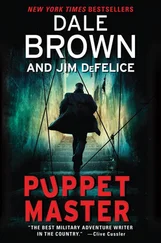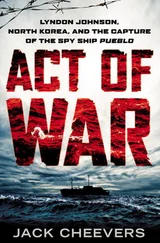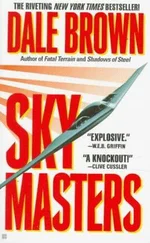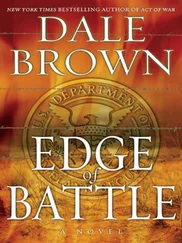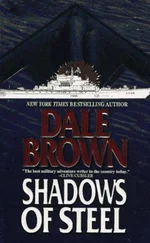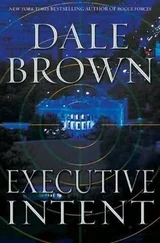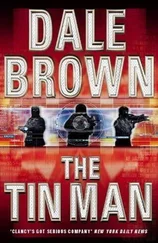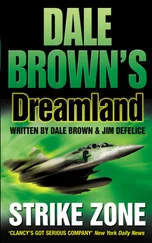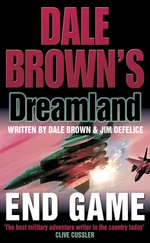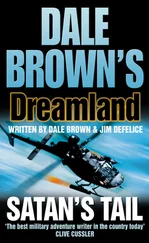“I’m wondering why the guy came back to the U.S.,” Cortez said. “Why take the risk, especially since he was almost nailed in Brazil?”
“Only two good reasons I can think of,” Kelsey said. “Either he didn’t get paid and he’s looking to collect, or…”
“He’s not finished blowing things up in the U.S.,” Cortez said ominously. “Or both.”
“Get me the heck out of here, Rudy,” Kelsey said. “Keep on pestering the director until he sees the President himself.”
“Get packed—you’ll be out of there soon,” Cortez said, and hung up.
Kelsey filled in Bolton as she put on her boots. “Where are you going?” Bolton interrupted her when he realized what she was doing. “You’re not going to tell them, are you?” Kelsey stopped in surprise—in fact, that’s exactly what she was going to do, and Bolton knew it. “Are you crazy? No way, Kel! As soon as the director can fix it we’re out of here. As far as I’m concerned, the task force is dead. Rudy gave you privileged FBI information—you can’t share it with anyone outside the Bureau.”
“But…”
“But nothing, Kel,” Bolton insisted. “You can’t even go out there now asking them questions, because they’ll figure you just got some hot information and they’ll want to know what it is. I suggest you keep it to yourself, Kel.”
After a moment’s hesitation, she nodded and kicked off her boots again. She found it surprisingly hard to roll back into bed. “Why do I feel like I’m withholding important information?” she asked.
“You don’t owe them jack, Kel,” Bolton said from the other side of the hallway. “This task force thing has been nothing but a royal cluster-fuck from day one, because Richter thought his shit didn’t stink. He abandoned us first…”
“He tried to get me to listen,” Kelsey said. “He told me and Jefferson what he wanted to do.”
“He told you about this hot information he had, sure—and then he left the base without any authorization and was getting ready to go to freakin’ Brazil…!”
“They almost got Zakharov.”
“They almost got themselves killed,” Bolton insisted, “and they still did it without authorization. Why are you defending them, Kel? They screwed up, but it’s our careers on the line! Just forget about these guys, Kel. By lunchtime we’ll be in Washington tracking these terrorists down, and we’ll do it the right way.”
Kelsey fell silent. If she had any hope of falling asleep again before dawn, she was disappointed.
The Oval Office, Washington, D.C.
Later that morning
Attorney General George Wentworth, National Intelligence Director Alexander Kallis, Secretary of Defense Russell Collier, and FBI Director Jeffrey F. Lemke stepped into the Oval Office and found Robert Chamberlain standing right beside the President of the United States, going over some documents. Victoria Collins was on the President’s phone, noticeably apart from the others.
That, Lemke thought, was not a good sign.
“C’mon in, guys,” the President said, standing and motioning to the chairs and couches in the meeting area in front of the fireplace. A steward brought in a tray of beverages and fixed one for each of the attendees according to their preferences. Again, Chamberlain sat on the chair just to the President’s right, the chair normally reserved for the Vice President. He took that chair not only because the Vice President was not in Washington—it had been decided after the attack in Kingman City to have the Vice President stay out of Washington and move locations to ensure the continuity of the government in case of an attack in the capital—but also to highlight the status and power the National Security Adviser held in this meeting.
Robert Chamberlain was in no uncertain terms the de facto vice president—and many in Washington, like Wentworth and Lemke, would say he was more like the copresident.
“Thank you, Mr. President,” Wentworth said. “We have some positive news to report, and a request.”
“Go right ahead, George,” the President said, taking a sip of tea. Wentworth outlined the details of the search for Yegor Zakharov in the San Francisco Bay area. “Interesting he decided to come to the States,” the President observed.
“Any reasons for that would be speculative, Mr. President,” FBI Director Lemke said, “but I think it was a mistake on his part. It’ll make it that much easier to nail him.”
“Robert has been reviewing Zakharov’s background with me,” the President said, motioning to the folder he and Chamberlain had been looking at before the meeting began. “As commander of this Russian tactical nuclear missile battalion, he would certainly know where the warheads were stored, who was guarding them, and who to bribe to get his hands on some.”
“Do you need me to bring you up to speed on Zakharov, Alex?” Chamberlain asked.
“Zakharov was commander of a regiment of short-and intermediate-range nuclear ballistic missiles near Kirov, northeast of Moscow,” Kallis said before Chamberlain could begin. Alexander Kallis had degrees in international relations from Dartmouth and Harvard. He joined the CIA after receiving his master’s degree and quickly rose through the ranks to become a deputy director in charge of policy before being nominated to serve as the National Intelligence Director, the office that combined all the federal, civil, and military intelligence activities of the United States of America. “After the Intermediate-Range Nuclear Forces Treaty was put into effect in 1988, his unit was deactivated. Zakharov publicly denounced the treaty and was quickly retired.
“He entered politics and joined the new Liberal Democratic Party of Russia in 1990, which was started by ultranationalist Vladimir Zhirinovsky,” Kallis went on. “Zakharov was the party boss in Kirov Oblast, the district in which his unit was headquartered, and was considered a major factor in Zhirinovsky’s rise to power and a candidate for a major office in Zhirinovsky’s government, perhaps minister of defense. But he obviously saw the handwriting on the wall, because after Zhirinovsky’s defeat in 1991, even though Zhirinovsky and the LDPR were still very powerful, Zakharov left politics and became a vice president of a pretty good-sized independent Russian oil company, KirovPyerviy.
“Zakharov became very wealthy, and combined with his military and political following, was starting to enjoy another tremendous surge in popularity,” Kallis said. “That might explain why the Russian government just a few years ago announced the decision to allow a foreign company, TransGlobal Energy, to acquire a majority stake in a private Russian oil company—and why that company turned out to be KirovPyerviy. Zakharov left KirovPyerviy…”
“No, Director Kallis—Zakharov went berserk,” Chamberlain interjected, quickly tiring of being upstaged by the youngster Kallis. “He threatened to blow up his wells, stage a coup, kill the Russian President, kill our President, kill Kingman…”
“Did you ever meet him, Mr. Chamberlain?” Kallis asked. “Sounds like you know him pretty well.”
“I met him once, at an energy conference in Scotland,” Chamberlain said dismissively. “He was full of himself, all right—acted like he still had the Red Army uniform on. We dismissed him as a stressed-out nutcase and figured he’d just drink himself to an early grave, like most of the nouveau riche in Russia.”
“Well, he didn’t,” Kallis said. “He sold off all his shares, took his fortune, and disappeared. He then shows up aligned with GAMMA, an environmental and human rights group based out of Brazil, helping the terrorists bomb dams and energy facilities, most of which belonged to TransGlobal Energy.”
Читать дальше

